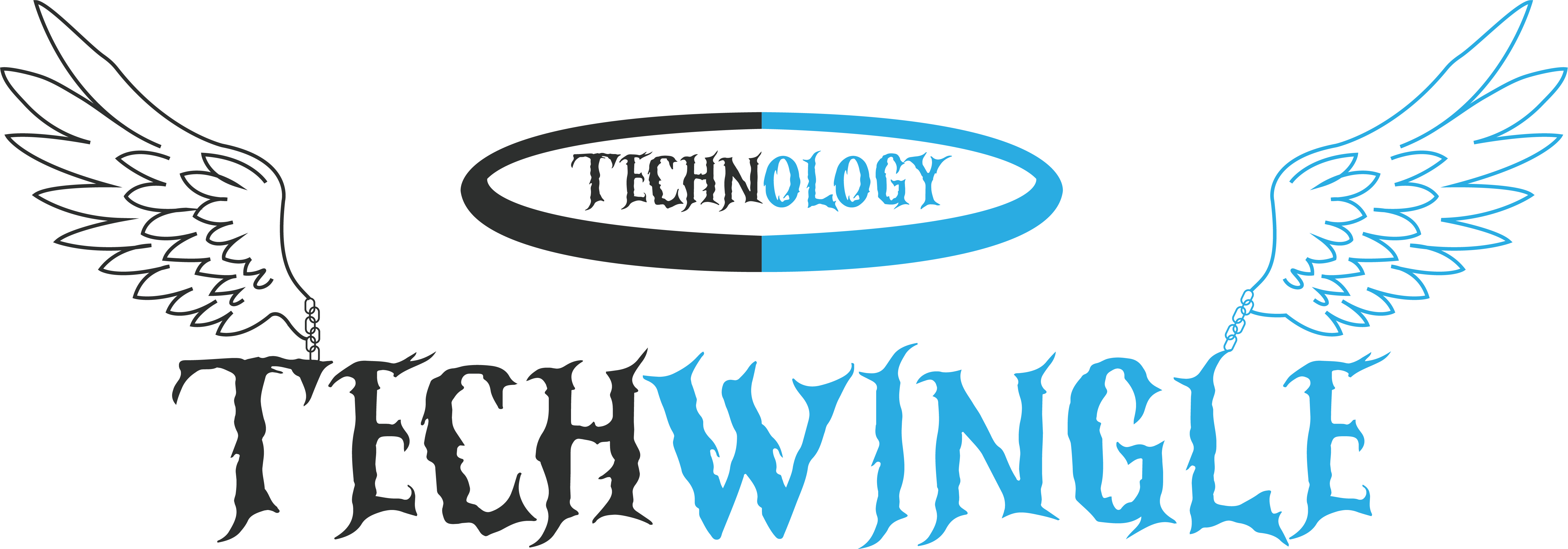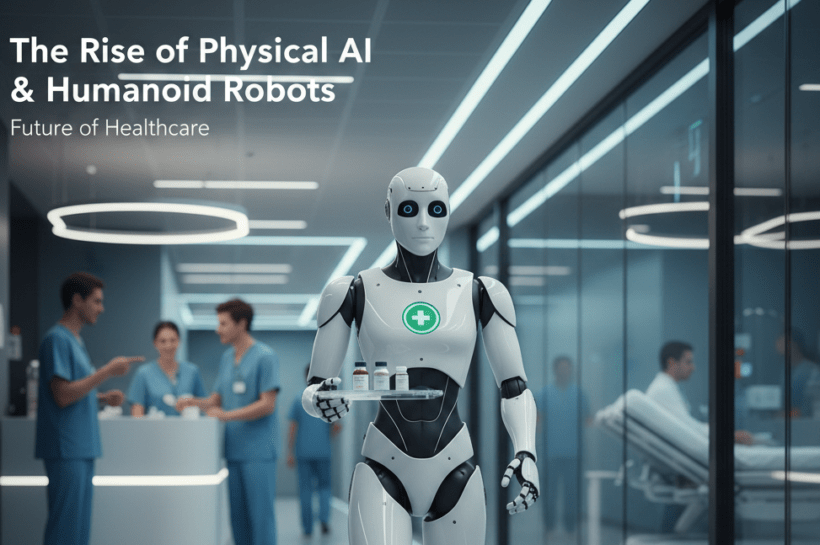Artificial Intelligence ( AI ) Emergence and Evolution in Digital World. Rapidly developing as a desirable concept in business that will revolutionize the industry as an integral part.
As Artificial Intelligence AI systems and capabilities evolve, a thriving business market has emerged to help companies strategically leverage AI to deliver new products. As business models have historically been outsourced to service providers, many companies are now partnering with experts to accelerate their AI adoption journey.
AI development services have a variety of offerings: cloud services firms that offer AI products such as natural language processing boutique machine learning consultants that guide the development of custom AI solutions.
AI development services have a variety of offerings: cloud services firms that offer AI products such as natural language processing boutique machine learning consultants that guide the development of custom AI solutions.
As interest in AI has grown rapidly, integrators, digital agencies, and leading IT consultancies have developed new capabilities to monitor, build, deploy, and manage AI systems for clients.
AI Strategic Consulting – The Company will be seasoned AI experts sharing use cases, analytics data/infrastructure, and business goals to craft a unique AI road map.
MLOps Engineering – Building model management, monitoring, retraining, and integration capabilities in cloud or on-prem infrastructure to run models in sustainable, scalable production workflows.
Artificial Intelligence – Core AI Services
An Overview Artificial Intelligence AI services that span the landscape vary in depth and complexity. Some common offers include
AI Strategic Consulting – The Company will be seasoned AI experts sharing use cases, analytics data/infrastructure, and business goals to craft a unique AI road map.
It also covers opportunity finding, solutions generation, governance conflicts as well as the whole of management suggestions.
Machine Learning Development + The real ML project activities, including Data assessment, Feature engineering, selecting/tuning models, and getting metrics to derive key metrics.
Machine Learning Development + The real ML project activities, including Data assessment, Feature engineering, selecting/tuning models, and getting metrics to derive key metrics.
MLOps Engineering – Building model management, monitoring, retraining, and integration capabilities in cloud or on-prem infrastructure to run models in sustainable, scalable production workflows.
Data Engineering – As quality training data is critical to the success of ML, services for building reliable data pipelines, and enhancing data quality and unstructured data structure through techniques such as EL/NLP.
AI/ML + business analytics – Augmented analytics involves combining AI/ML with business intelligence, data preparation, and insight capabilities to automate manual analysis for speeding up the discovery of deep, actionable insights.
Humanize Conversational AI – Designing chatbots, virtual assistants, and other applications that are based on learning and understanding natural language which enables the users to speak to them as they would speak to fellow humans to enhance their experience and improve the efficiency of agents.
Computer Vision Services – Services on implementing CV techniques like image recognition, video analysis, and anomaly detection for different use cases such as QA and security systems.
Humanize Conversational AI – Designing chatbots, virtual assistants, and other applications that are based on learning and understanding natural language which enables the users to speak to them as they would speak to fellow humans to enhance their experience and improve the efficiency of agents.
Computer Vision Services – Services on implementing CV techniques like image recognition, video analysis, and anomaly detection for different use cases such as QA and security systems.
Amazing Benefits of Using AI Development
- The growing public recognition of AI capabilities or potential, macro-economic developments, and health concerns among others are key drivers of the surge in demand for external Artificial Intelligence services.
- Skill utilization goes hand in hand with the infusion of AI, whereas there is still a shortage of digital workers who can else utilize artificial intelligence.
- The teams of internal data/analytics that are hired exclusively for development would come across roadblocks during their development process which could prolong the development of Artificial Intelligence.
- AI adoption companies specialists give the opportunity that Artificial Intelligence integration is faster regardless of significant bumps or diversion of internal constituency.
Additional Reasons Organizations are Using AI Partners Include
Fastest Innovation – Prove value quickly by getting the fastest ROI on AI use cases by tapping external expertise with the greatest impact. 30-50% faster than trying pure inside ear.De-Risk Initiatives – External experts apply proven AI/ML frameworks to ensure model accuracy, reduce technical debt, and establish governance to build trust/transparency.
Future-Proof AI Program – To ensure solution sustainability through well-designed ML Ops, model management, continuous training/monitoring, and infrastructure support services.
Optimized Cloud Utilization – Optimizes usage of partner cloud services like EC2, Recognition, Translate, Comprehension, etc. They also determine which applications warrant custom cloud-native development versus pure reliance on cloud vendor AI offerings.
AI Services That Are Evolving and What’s Next. While still in the early days,
Artificial Intelligence Services Evolved in Several Stages
Phase 1 – Point AI Consulting – The initial focus was on strategic plans that identified and prioritized AI use cases through workshops and opportunity assessments.Phase 2 – Custom AI Build – As the cloud ML democratization capability builds, the focus shifts to the specific development of custom ML solutions tailored to the client’s data and goals.
Phase 3 – MLOps Services – Integration, monitoring, and governance required to sustain AI solutions in production through MLOps services.
Phase 4 – Scaling AI Adoption – The current stage sees the maturation of end-to-end services to industrialize AI adoption through interconnected strategy, data, ML engineering, and MLOps programs.
Phase 5 – Multi-horizon AI Innovation – The next evolution centers on engaging partners to work continuously on concurrent batches of AI innovation aligned with business objectives over different time horizons.
As AI performance becomes a cornerstone of competitive advantage, service partners act as ongoing capability amplifiers through embedded, multifaceted programs that include ad hoc innovation, long-horizon moonshots, and everything in between.
Services whose future roles range from project-based consulting to end-to-end AI transformation catalysts.
The Right AI Services Partner to Review
Not all service providers are equal when it comes to driving impact through AI. As with any strategic capability, organizations should carefully evaluate partners along several dimensions.
2. Technical foundations – Look for partners with a high degree of software engineering with the infrastructure and automation skills to properly build solutions with MLOps. Analytical experience is also important to ensure model business alignment.
3. Industry understanding – Domain expertise in your specific industry goes a long way, as does using industry-specific data in training models. It creates solutions according to the general capabilities of your environment.
4. Methodology – Ask partners to walk through their framework for solution development, deployment, and ongoing operation. Determine how robust, repeatable, and scalable methods are.
5. Experience with Cloud Platforms – Given that many solutions use cloud infrastructure, consult experts on platforms like AWS, GCP, and Azure to determine the best fit for your technology environment.
5. Experience with Cloud Platforms – Given that many solutions use cloud infrastructure, consult experts on platforms like AWS, GCP, and Azure to determine the best fit for your technology environment.
Partners who look beyond strategic project delivery and position services during the review are empowered to realize the full, ongoing disruptive potential of Artificial Intelligence.
Service partners today help companies build AI capabilities to deliver sustainable business impact. They also provide valuable insight into the potential of tomorrow’s state-of-the-art – for organizations to delve deeper and deeper into Artificial Intelligence. Read More: The Evolution of Human-Computer Interaction ( HCI )
Comment your Thoughts/Queries Below.
















My coder is trying to persuade me to move to .net from PHP. I have always disliked the idea because of the expenses. But he’s tryiong none the less. I’ve been using Movable-type on numerous websites for about a year and am worried about switching to another platform. I have heard very good things about blogengine.net. Is there a way I can import all my wordpress posts into it? Any help would be really appreciated!
You are my breathing in, I own few web logs and often run out from post :). “Actions lie louder than words.” by Carolyn Wells.
I like what you guys are up too. Such clever work and reporting! Carry on the excellent works guys I have incorporated you guys to my blogroll. I think it’ll improve the value of my website 🙂
This actually answered my problem, thank you!
Your point of view caught my eye and was very interesting. Thanks. I have a question for you.
Thanks for sharing. I read many of your blog posts, cool, your blog is very good.
Wow that was strange. I just wrote an extremely long comment but after I clicked submit my comment didn’t show up. Grrrr… well I’m not writing all that over again. Anyway, just wanted to say excellent blog!
Can you be more specific about the content of your article? After reading it, I still have some doubts. Hope you can help me.
I don?t even understand how I ended up here, but I assumed this put up was once great. I do not know who you’re however definitely you’re going to a famous blogger if you are not already 😉 Cheers!
Thanks for every other informative website. Where else may just I get that kind of info written in such a perfect way? I have a venture that I’m just now operating on, and I’ve been on the glance out for such info.
This is really interesting, You are a very skilled blogger. I have joined your rss feed and look forward to seeking more of your great post. Also, I have shared your web site in my social networks!
I would like to thank you for the efforts you’ve put in writing this web site. I am hoping the same high-grade website post from you in the upcoming as well. In fact your creative writing abilities has inspired me to get my own web site now. Actually the blogging is spreading its wings quickly. Your write up is a good example of it.
Excellent blog here! Also your site loads up fast! What web host are you using? Can I get your affiliate link to your host? I wish my web site loaded up as quickly as yours lol
That is the right blog for anyone who wants to find out about this topic. You realize so much its virtually hard to argue with you (not that I really would need…HaHa). You undoubtedly put a brand new spin on a topic thats been written about for years. Nice stuff, just nice!
I’m really inspired with your writing abilities and also with the layout in your blog. Is that this a paid topic or did you customize it yourself? Anyway keep up the excellent quality writing, it?s uncommon to peer a nice blog like this one these days..
Simply want to say your article is as astonishing. The clarity on your post is just nice and that i can think you are knowledgeable in this subject. Well along with your permission allow me to grasp your feed to keep up to date with coming near near post. Thanks a million and please carry on the rewarding work.
Today, with all the fast life-style that everyone leads, credit cards have a big demand throughout the market. Persons throughout every arena are using credit card and people who are not using the credit card have made arrangements to apply for even one. Thanks for spreading your ideas about credit cards.
Your website won’t render correctly on my iphone 3gs – you might want to try and repair that
Thank you for this article. I’d also like to express that it can be hard when you find yourself in school and starting out to initiate a long history of credit. There are many individuals who are simply trying to pull through and have long or positive credit history can often be a difficult issue to have.
hello there and thank you to your information ? I have certainly picked up anything new from proper here. I did then again experience a few technical issues using this web site, as I experienced to reload the web site a lot of occasions prior to I may get it to load correctly. I were brooding about in case your hosting is OK? Now not that I’m complaining, however slow loading instances occasions will sometimes affect your placement in google and could damage your quality rating if ads and ***********|advertising|advertising|advertising and *********** with Adwords. Well I am including this RSS to my e-mail and could look out for a lot more of your respective interesting content. Ensure that you replace this once more very soon..
This is the right blog for anyone who desires to find out about this topic. You realize a lot its almost arduous to argue with you (not that I truly would need?HaHa). You positively put a brand new spin on a subject thats been written about for years. Great stuff, just nice!
Hi there just wanted to give you a quick heads up and let you know a few of the pictures aren’t loading properly. I’m not sure why but I think its a linking issue. I’ve tried it in two different web browsers and both show the same results.
Thank you for your sharing. I am worried that I lack creative ideas. It is your article that makes me full of hope. Thank you. But, I have a question, can you help me?
Hey! Do you use Twitter? I’d like to follow you if that would be ok. I’m absolutely enjoying your blog and look forward to new posts.
I?m impressed, I need to say. Actually hardly ever do I encounter a blog that?s each educative and entertaining, and let me let you know, you could have hit the nail on the head. Your concept is excellent; the difficulty is one thing that not enough people are talking intelligently about. I am very joyful that I stumbled throughout this in my seek for one thing regarding this.
Hi there! Do you know if they make any plugins to protect against hackers? I’m kinda paranoid about losing everything I’ve worked hard on. Any tips?
I just couldn’t depart your web site before suggesting that I extremely enjoyed the standard information a person provide for your visitors? Is gonna be back often in order to check up on new posts
What i don’t understood is in reality how you are no longer actually much more smartly-liked than you may be right now. You’re very intelligent. You understand therefore significantly relating to this subject, produced me in my opinion believe it from so many varied angles. Its like men and women aren’t interested except it?s something to do with Lady gaga! Your individual stuffs excellent. Always care for it up!
Thanks for your recommendations on this blog. One particular thing I would like to say is that often purchasing electronic devices items on the Internet is not something new. In fact, in the past 10 years alone, the marketplace for online gadgets has grown noticeably. Today, you will discover practically any specific electronic gizmo and other gadgets on the Internet, which include cameras and camcorders to computer spare parts and game playing consoles.
Thanks for the various tips shared on this site. I have realized that many insurance companies offer buyers generous special discounts if they choose to insure multiple cars together. A significant quantity of households own several autos these days, especially those with more aged teenage kids still residing at home, as well as the savings for policies might soon increase. So it pays to look for a bargain.
Hey very cool site!! Man .. Excellent .. Amazing .. I will bookmark your blog and take the feeds also?I am happy to find numerous useful information here in the post, we need develop more strategies in this regard, thanks for sharing. . . . . .
g0fr0p
Your article helped me a lot, is there any more related content? Thanks!
I have figured out some essential things through your website post. One other thing I would like to express is that there are various games available and which are designed particularly for toddler age children. They contain pattern recognition, colors, family pets, and shapes. These usually focus on familiarization in lieu of memorization. This keeps little ones engaged without having the experience like they are studying. Thanks
I’ve learned quite a few important things by means of your post. I would also like to mention that there will be a situation that you will obtain a loan and never need a cosigner such as a National Student Aid Loan. But if you are getting credit through a standard loan service then you need to be able to have a co-signer ready to assist you to. The lenders may base their decision using a few variables but the greatest will be your credit rating. There are some loan providers that will in addition look at your work history and make a decision based on this but in many instances it will hinge on your scores.
Your point of view caught my eye and was very interesting. Thanks. I have a question for you.
This is hands down one of the greatest articles I’ve read on this topic! The author’s thorough knowledge and enthusiasm for the subject shine through in every paragraph. I’m so thankful for coming across this piece as it has enriched my knowledge and sparked my curiosity even further. Thank you, author, for taking the time to produce such a phenomenal article!
Your article helped me a lot, is there any more related content? Thanks!
Thanks for expressing your ideas on this blog. Likewise, a myth regarding the banking institutions intentions when talking about property foreclosures is that the bank will not getreceive my repayments. There is a degree of time that this bank is going to take payments from time to time. If you are as well deep within the hole, they’re going to commonly desire that you pay the actual payment completely. However, i am not saying that they will not take any sort of payments at all. In the event you and the financial institution can have the ability to work something out, your foreclosure practice may stop. However, should you continue to pass up payments beneath new plan, the home foreclosure process can pick up exactly where it left off.
Undeniably believe that which you stated. Your favorite reason seemed to be on the web the easiest thing to be aware of. I say to you, I definitely get irked while people consider worries that they plainly don’t know about. You managed to hit the nail upon the top as well as defined out the whole thing without having side-effects , people can take a signal. Will probably be back to get more. Thanks
I am curious to find out what blog system you’re using? I’m experiencing some minor security issues with my latest blog and I would like to find something more safeguarded. Do you have any solutions?
Thank you, your article surprised me, there is such an excellent point of view. Thank you for sharing, I learned a lot.
Thanks for sharing. I read many of your blog posts, cool, your blog is very good.
Valuable information. Lucky me I found your website by accident, and I’m shocked why this accident didn’t happened earlier! I bookmarked it.
I do enjoy the way you have presented this particular problem and it does indeed offer us a lot of fodder for thought. On the other hand, through what precisely I have experienced, I only wish as the actual feedback pile on that individuals stay on issue and not start on a tirade of the news of the day. All the same, thank you for this superb point and even though I can not really agree with this in totality, I respect the standpoint.
The following time I read a blog, I hope that it doesnt disappoint me as much as this one. I imply, I do know it was my choice to read, however I actually thought youd have something interesting to say. All I hear is a bunch of whining about one thing that you would repair for those who werent too busy on the lookout for attention.
When I initially commented I clicked the “Notify me when new comments are added” checkbox and now each time a comment is added I get several emails with the same comment. Is there any way you can remove people from that service? Many thanks!
Howdy this is kind of of off topic but I was wanting to know if blogs use WYSIWYG editors or if you have to manually code with HTML. I’m starting a blog soon but have no coding knowledge so I wanted to get advice from someone with experience. Any help would be enormously appreciated!
Thank you for your sharing. I am worried that I lack creative ideas. It is your article that makes me full of hope. Thank you. But, I have a question, can you help me?
At this time it looks like BlogEngine is the best blogging platform out there right now. (from what I’ve read) Is that what you are using on your blog?
I just could not go away your web site prior to suggesting that I actually enjoyed the standard information a person provide to your guests? Is going to be back regularly to check up on new posts
Hey there just wanted to give you a quick heads up and let you know a few of the pictures aren’t loading correctly. I’m not sure why but I think its a linking issue. I’ve tried it in two different browsers and both show the same results.
I don’t think the title of your article matches the content lol. Just kidding, mainly because I had some doubts after reading the article.
Nice read, I just passed this onto a friend who was doing some research on that. And he just bought me lunch because I found it for him smile Therefore let me rephrase that: Thank you for lunch!
It?s actually a great and helpful piece of information. I?m satisfied that you shared this helpful information with us. Please stay us up to date like this. Thanks for sharing.
Your point of view caught my eye and was very interesting. Thanks. I have a question for you.
I have really noticed that fixing credit activity has to be conducted with techniques. If not, you are going to find yourself destroying your positioning. In order to grow into success fixing your credit rating you have to confirm that from this moment you pay all your monthly dues promptly prior to their booked date. It’s really significant because by never accomplishing this, all other moves that you will decide on to improve your credit rank will not be effective. Thanks for discussing your suggestions.
Thanks for your write-up. I would also like to say that the very first thing you will need to carry out is determine whether you really need credit restoration. To do that you have got to get your hands on a duplicate of your credit profile. That should really not be difficult, because the government necessitates that you are allowed to have one absolutely free copy of your actual credit report each year. You just have to request that from the right men and women. You can either read the website for your Federal Trade Commission or even contact one of the leading credit agencies immediately.
Thank you for every other fantastic article. Where else may anybody get that type of information in such an ideal way of writing? I’ve a presentation next week, and I am on the look for such info.
I reckon something genuinely interesting about your web site so I saved to my bookmarks.
But wanna comment on few general things, The website style and design is perfect, the content is real great. “Some for renown, on scraps of learning dote, And think they grow immortal as they quote.” by Edward Young.
I have really learned result-oriented things by your blog. One other thing I want to say is that newer laptop operating systems are likely to allow more memory to be utilized, but they likewise demand more memory space simply to run. If an individual’s computer can’t handle more memory and the newest computer software requires that memory increase, it usually is the time to buy a new Computer system. Thanks
Your article helped me a lot, is there any more related content? Thanks!
Can you be more specific about the content of your article? After reading it, I still have some doubts. Hope you can help me.
Great post and straight to the point. I don’t know if this is truly the best place to ask but do you guys have any thoughts on where to employ some professional writers? Thanks in advance 🙂
Spot on with this write-up, I truly think this web site wants far more consideration. I?ll most likely be once more to learn rather more, thanks for that info.
One other issue is that if you are in a circumstances where you will not have a co-signer then you may really want to try to make use of all of your financing options. You will discover many funds and other free college funding that will present you with funding to support with college expenses. Many thanks for the post.
I’ve noticed that credit repair activity has to be conducted with techniques. If not, chances are you’ll find yourself damaging your positioning. In order to grow into success fixing your credit score you have to confirm that from this instant you pay your monthly costs promptly before their scheduled date. It is really significant on the grounds that by definitely not accomplishing that area, all other methods that you will decide to use to improve your credit positioning will not be powerful. Thanks for sharing your concepts.
Attractive section of content. I just stumbled upon your weblog and in accession capital to assert that I acquire actually enjoyed account your blog posts. Any way I will be subscribing to your augment and even I achievement you access consistently fast.
Hey there! This is kind of off topic but I need some advice from an established blog. Is it very difficult to set up your own blog? I’m not very techincal but I can figure things out pretty quick. I’m thinking about setting up my own but I’m not sure where to start. Do you have any tips or suggestions? Thanks
You really make it seem so easy with your presentation but I find this matter to be really something which I think I would never understand. It seems too complicated and very broad for me. I am looking forward for your next post, I?ll try to get the hang of it!
affordablecanvaspaintings.com.au is Australia Popular Online 100 percent Handmade Art Store. We deliver Budget Handmade Canvas Paintings, Abstract Art, Oil Paintings, Artwork Sale, Acrylic Wall Art Paintings, Custom Art, Oil Portraits, Pet Paintings, Building Paintings etc. 1000+ Designs To Choose From, Highly Experienced Artists team, Up-to 50 percent OFF SALE and FREE Delivery Australia, Sydney, Melbourne, Brisbane, Adelaide, Hobart and all regional areas. We ship worldwide international locations. Order Online Your Handmade Art Today.
Excellent post. I was checking constantly this blog and I am impressed! Extremely useful info specially the last part 🙂 I care for such info a lot. I was seeking this certain information for a long time. Thank you and good luck.
I have taken note that of all varieties of insurance, health insurance coverage is the most questionable because of the discord between the insurance cover company’s necessity to remain adrift and the buyer’s need to have insurance policies. Insurance companies’ commissions on wellness plans are extremely low, so some companies struggle to earn profits. Thanks for the concepts you share through this blog.
Good post. I study one thing more challenging on completely different blogs everyday. It will all the time be stimulating to learn content from different writers and follow somewhat one thing from their store. I?d prefer to make use of some with the content material on my weblog whether or not you don?t mind. Natually I?ll give you a hyperlink on your internet blog. Thanks for sharing.
Can you be more specific about the content of your article? After reading it, I still have some doubts. Hope you can help me.
Your point of view caught my eye and was very interesting. Thanks. I have a question for you.
Good day I am so excited I found your site, I really found you by accident, while I was looking on Bing for something else, Anyhow I am here now and would just like to say many thanks for a fantastic post and a all round exciting blog (I also love the theme/design), I don’t have time to browse it all at the minute but I have bookmarked it and also added your RSS feeds, so when I have time I will be back to read a lot more, Please do keep up the fantastic work.
you’ve an amazing weblog right here! would you wish to make some invite posts on my weblog?
whoah this blog is magnificent i love reading your posts. Keep up the good work! You know, many people are looking around for this info, you could help them greatly.
hi!,I like your writing so much! share we communicate more about your post on AOL? I require an expert on this area to solve my problem. May be that’s you! Looking forward to see you.
I believe that avoiding processed foods would be the first step in order to lose weight. They could taste excellent, but prepared foods have very little vitamins and minerals, making you try to eat more only to have enough vigor to get with the day. Should you be constantly having these foods, converting to cereals and other complex carbohydrates will assist you to have more vigor while feeding on less. Great blog post.
I can’t express how much I value the effort the author has put into writing this outstanding piece of content. The clarity of the writing, the depth of analysis, and the plethora of information offered are simply remarkable. Her enthusiasm for the subject is obvious, and it has definitely made an impact with me. Thank you, author, for offering your wisdom and enriching our lives with this exceptional article!
What?s Taking place i am new to this, I stumbled upon this I’ve discovered It absolutely helpful and it has aided me out loads. I’m hoping to give a contribution & aid different customers like its aided me. Great job.
Thank you for your sharing. I am worried that I lack creative ideas. It is your article that makes me full of hope. Thank you. But, I have a question, can you help me?
I have realized that over the course of constructing a relationship with real estate entrepreneurs, you’ll be able to come to understand that, in most real estate contract, a commission is paid. In the end, FSBO sellers never “save” the commission rate. Rather, they try to earn the commission through doing an agent’s job. In doing this, they commit their money and time to execute, as best they might, the duties of an adviser. Those duties include disclosing the home via marketing, representing the home to willing buyers, constructing a sense of buyer desperation in order to trigger an offer, booking home inspections, handling qualification check ups with the loan company, supervising maintenance, and assisting the closing of the deal.
whoah this blog is fantastic i like reading your posts. Keep up the good paintings! You realize, a lot of people are looking round for this info, you can help them greatly.
One thing I would like to discuss is that weight loss program fast can be performed by the suitable diet and exercise. An individual’s size not simply affects the look, but also the actual quality of life. Self-esteem, depression, health risks, and physical skills are disturbed in fat gain. It is possible to do everything right but still gain. Should this happen, a problem may be the root cause. While a lot food rather than enough workout are usually guilty, common medical ailments and trusted prescriptions can greatly enhance size. Thanks for your post in this article.
I do not even know how I finished up here, however I assumed this publish was once good. I don’t realize who you might be but certainly you’re going to a well-known blogger if you happen to are not already 😉 Cheers!
I just could not depart your web site prior to suggesting that I actually enjoyed the standard information a person provide for your visitors? Is gonna be back often in order to check up on new posts
I was just seeking this information for some time. After 6 hours of continuous Googleing, at last I got it in your site. I wonder what is the lack of Google strategy that do not rank this kind of informative sites in top of the list. Usually the top web sites are full of garbage.
I have observed that in the world nowadays, video games are definitely the latest craze with children of all ages. There are occassions when it may be impossible to drag the kids away from the video games. If you want the best of both worlds, there are lots of educational activities for kids. Thanks for your post.
I think one of your adverts triggered my browser to resize, you may well want to put that on your blacklist.
My brother recommended I would possibly like this website. He was entirely right. This submit truly made my day. You cann’t imagine simply how a lot time I had spent for this information! Thanks!
Thanks for sharing. I read many of your blog posts, cool, your blog is very good.
The other day, while I was at work, my cousin stole my iphone and tested to see if it can survive a 40 foot drop, just so she can be a youtube sensation. My apple ipad is now destroyed and she has 83 views. I know this is completely off topic but I had to share it with someone!
One thing I’d like to say is the fact that car insurance cancelling is a dreadful experience so if you’re doing the proper things as a driver you won’t get one. A number of people do obtain the notice that they’ve been officially dropped by their particular insurance company and many have to fight to get extra insurance from a cancellation. Low-priced auto insurance rates are usually hard to get following a cancellation. Understanding the main reasons for auto insurance cancellations can help owners prevent sacrificing one of the most significant privileges offered. Thanks for the strategies shared via your blog.
As I website possessor I believe the content material here is rattling great , appreciate it for your efforts. You should keep it up forever! Best of luck.
you have a great blog here! would you like to make some invite posts on my blog?
Excellent goods from you, man. I’ve be aware your stuff previous to and you’re just too fantastic. I actually like what you have got here, certainly like what you’re stating and the best way by which you say it. You’re making it enjoyable and you continue to take care of to stay it sensible. I can’t wait to read much more from you. This is actually a great website.
Great post. I was checking constantly this blog and I’m impressed! Extremely helpful info particularly the last part 🙂 I care for such info much. I was seeking this certain information for a long time. Thank you and best of luck.
I like the helpful info you provide in your articles. I will bookmark your weblog and check again here frequently. I am quite sure I?ll learn many new stuff right here! Good luck for the next!
Hi there, You’ve done a great job. I will definitely digg it and in my opinion suggest to my friends. I am sure they will be benefited from this website.
Your article helped me a lot, is there any more related content? Thanks!
Hi, i think that i saw you visited my blog thus i came to ?return the favor?.I’m attempting to find things to improve my web site!I suppose its ok to use some of your ideas!!
Hello there, just turned into aware of your blog through Google, and located that it is really informative. I am gonna watch out for brussels. I will appreciate if you happen to proceed this in future. Lots of other folks will probably be benefited from your writing. Cheers!